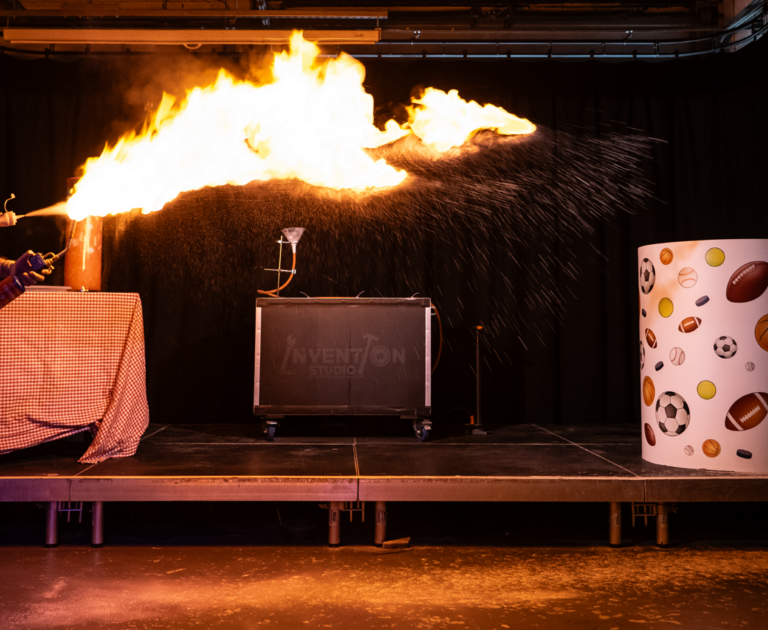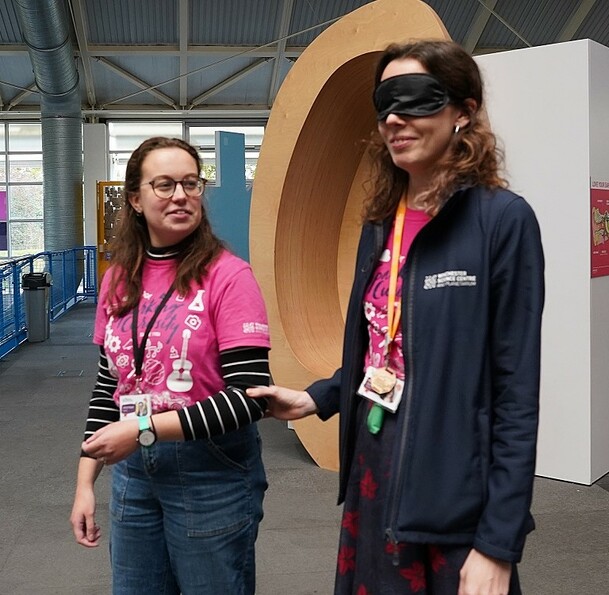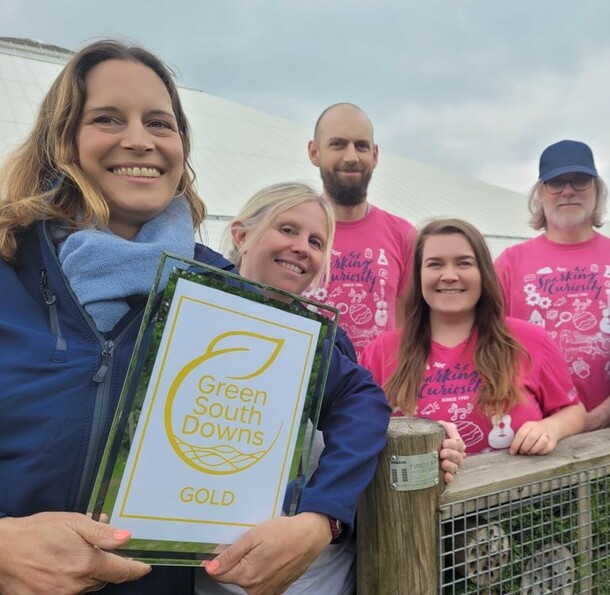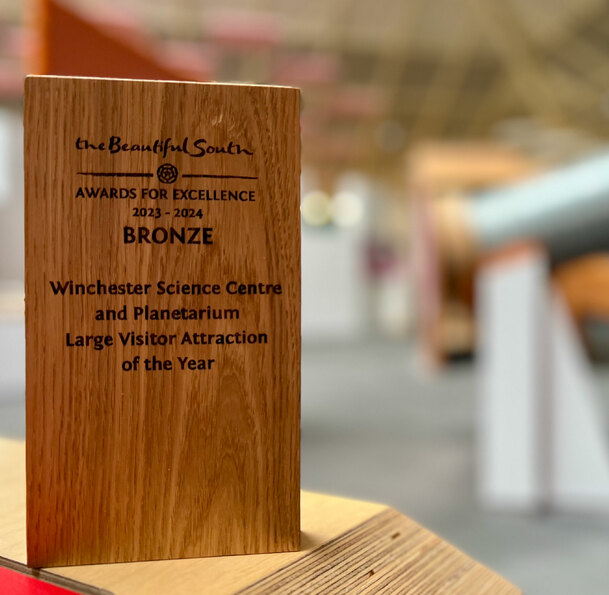Not sure what to do after your A-levels, why not give science communication a try? It’s an unconventional role that you might not have heard of before but a great way to gain a variety of skills to boost your CV. Here at Winchester Science Centre, we have a fantastic team of science communicators, known as Inspirers, who are the familiar faces of our Science Centre. Their job is to make science fun and engaging for all our visitors. Interested? Read on to learn more about this exciting profession and discover the A-level subjects some of our staff studied.
You might be surprised to know that you don’t need to have a science background to begin your adventure into science communication. If you enjoy working with children, entertaining people, or working with communities, this might be the job for you. Science communication is a great way to gain various transferable skills. Build your confidence in public speaking, develop your quick-thinking skills, and become a team player. These skills are essential across so many different industries.
An Inspirer is not an expert in science but is there to support children by making learning fun and engaging. From delivering workshops to schools, to performing live science experiments and planetarium shows, to running outreach activities, taking science into schools and communities, no day is the same. Each show and workshop explore various scientific topics from friction to climate change to the different states of matter.
So, whether you love science or know very little or are simply curious about the world, this job welcomes people with all sorts of experience.
Jackson Hemming, Schools Curiosity Officer, said: “When hiring Inspirers, the quality I look for is a passion for working with children. I think that’s more important than any qualifications a person has.”
Our current Inspirers studied many different A-levels. Some followed the more traditional route with biology, chemistry, and physics, while others studied subjects completely unrelated to science like theatre, film, or media.
One of our Inspirers, Grace Murray, who joined the team two and a half years ago, said: “This role is more suited to performing arts than you might think. Anyone can know the science but being able to communicate it in a way that’s engaging and going to help a child to understand it, is the key to being a great Inspirer.”
If you’re interested in science communication, visit our vacancies page.






